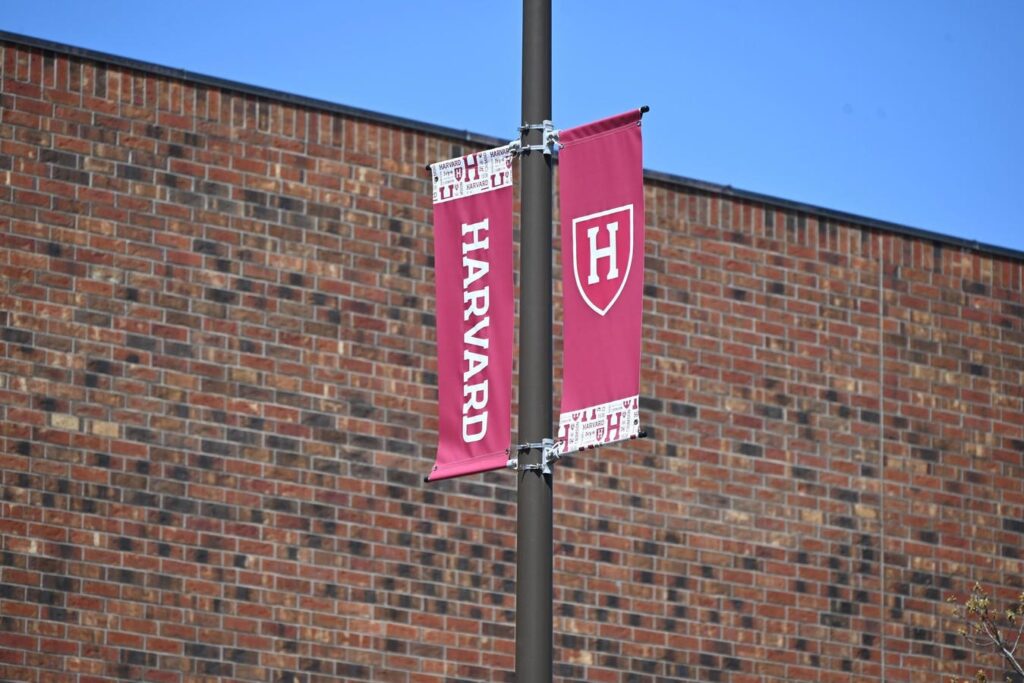CAMBRIDGE, MASSACHUSETTS, UNITED STATES – APRIL 22: A view of Harvard University in Cambridge, … More
Harvard University’s $53.2 billion endowment, the largest in higher education, is offloading $1 billion in private equity stakes, a move advised by Jefferies Financial Group and potentially involving Lexington Partners as a buyer, according to Reuters. This seismic shift in the Ivy League’s financial strategy comes amid a broader trend of elite universities unloading illiquid assets.
While this may seem like a golden opportunity for retail investors to access the once-exclusive world of private equity, the reality is far more cautionary. As large institutions like the Harvard and Yale endowments seek liquidity and a reduction in private equity investment, it is no coincidence that simultaneously Wall Street has been pushing to “democratize” private equity. This push to “democratize” private equity should raise red flags, as it may be a strategic move to offload overvalued, illiquid assets onto less sophisticated investors at a time when the largest investors in private equity are looking for an exit.
Harvard’s Liquidity Crunch
Harvard’s endowment, an early adopter of the Yale Model, has long relied on alternative assets like private equity, which make up nearly 40% of its portfolio, according to its latest annual financial report. This strategy, championed by David Swensen, delivered robust returns for decades, funding everything from faculty salaries to student aid.
But today, universities face a perfect storm: the Trump administration’s threats to freeze $9 billion in federal funding, hiring freezes, and a sluggish private equity market have created a liquidity crisis. Harvard’s response—a $750 million bond issuance reported by Reuters and the sale of $1 billion in private equity stakes—mirrors moves by Yale, which plans to offload $6 billion in similar assets according to the Yale Daily News. These sales represent a sector-wide scramble for cash as endowments grapple with aging fund vintages tied up in illiquid investments.
The private equity market itself is faltering. According to MSCI, private equity returns lagged behind private credit in 2024, with private equity posting a 5.6% annual return compared to private credit’s stronger performance. All three private equity subgroups tracked by MSCI delivered positive but underwhelming returns, trailing broader market benchmarks due to a slowdown in exit opportunities and persistent high interest rates, which have constrained liquidity and valuations. This environment has forced endowments to rethink their heavy reliance on private equity, which locks up capital for years and offers little flexibility in times of need.
Wall Street’s “Democratization” Push
Private equity has historically been restricted to high-net-worth individuals and institutional investors due to its speculative and illiquid nature, as regulated by the Securities and Exchange Commission. These investments involve acquiring stakes in private companies or startups, with returns realized through liquidity events like IPOs or sales.
But as markets falter—particularly in tech—and rising interest rates, the ability to exit these investments has dwindled. MSCI data highlights that private equity funds are increasingly turning into “zombie” funds, holding investments far longer than intended due to a scarcity of exit opportunities, such as IPOs or sales, in a high-interest-rate environment. This liquidity drought has left institutional investors, including universities, stuck with capital they can’t access in private equity investments with potentially sub-par future returns.
Enter Wall Street’s sudden enthusiasm for “democratizing” private equity. Regulatory changes, such as the SEC’s loosened restrictions on private market access, have opened the door for retail investors through financial advisors and firms like Franklin Templeton, which owns Lexington Partners.
Companies like Empower are even offering private market investments in retirement plans, per the company’s recent news release. On the surface, this seems like a chance for everyday investors to tap into the high returns once reserved for the elite. But the timing is suspicious. Why would Wall Street share a historically profitable asset class with the public now, when exits are scarce and valuations are shaky?
The answer lies in liquidity. Private equity investors, including endowments, are desperate to offload illiquid stakes. By marketing these assets to retail investors, Wall Street creates a new pool of buyers—less sophisticated investors who may not fully grasp the risks.
Historically, private equity has used IPOs to offload overhyped, often unprofitable companies onto the public, reaping massive profits while leaving retail investors and retirement accounts holding overvalued stock. “Democratizing” private equity skips the IPO step, directly selling illiquid, potentially overvalued shares to the public. As billionaire investor Bill Ackman warned, endowments like Harvard’s may face meaningful losses on these discounted sales, as reported by Bloomberg. And retail investors could be next in line to bear the cost.
Risks For Retail Investors
For retail investors, the allure of private equity is undeniable but fraught with peril. These investments are complex, with long lock-up periods and opaque valuations that can mask underlying weaknesses. Unlike mutual funds, private equity offers little transparency, and retail investors may struggle to assess true value.
In this environment, financial advisors face a steep challenge in conducting due diligence to protect clients. Entering the market now, when endowments are selling at discounts, raises the risk of buying at inflated valuations or after peak returns have passed.
The broader financial ecosystem is also at a turning point. Harvard’s sell-off could trigger a wave of secondary market activity, with sovereign funds, family offices, and retail-focused firms stepping in. But discounted sales may spark broader price corrections, challenging the high returns that once justified private equity’s appeal. For universities, unloading these stakes provides short-term liquidity but risks locking in losses and signaling a retreat from alternative investments.
Wall Street’s push to “democratize” private equity may seem like an opportunity for retail investors, but it’s likely a strategy to transfer risk to a less savvy public. Financial advisors must prioritize education, ensuring clients understand the illiquidity and complexity of these investments. When Wall Street suddenly shares its exclusive opportunities, history suggests it’s not out of generosity. Buyer beware: Harvard’s loss could become retail investors’ burden.


